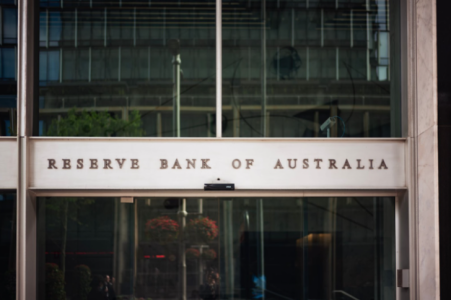AMP Deputy Chief Economist issues warning about the impending 'Day of Reckoning'
By
VanessaC
- Replies 18
A lot of changes have happened recently due to the ongoing cost of living crisis.
This 2024, Australia's economic landscape is set to face a significant shift, with a leading economist warning of a potential recession.
The cause? A rapid and brutal rise in interest rates.
This 'day of reckoning', as it's been ominously dubbed, could have far-reaching implications for Australians, affecting everything from home loans to business costs and the overall cost of living.
AMP's Deputy Chief Economist, Diana Mousina, has raised the alarm, stating that there's a 40 per cent risk of a recession in Australia.
This comes in the wake of one of the most intense cycles of rate rises by the Reserve Bank of Australia (RBA).
Over the past 19 months, the RBA has rapidly increased the cash rate 13 times, catapulting interest rates from 0.10 per cent to a staggering 4.35 per cent.
The RBA's hand was forced due to soaring inflation, necessitating these rate hikes to keep prices in check.
However, this has resulted in increased costs for homeowners and businesses alike.
'Usually, whenever we get a very significant increase to interest rates, just like we've had right now, there is some sort of reckoning—a day of reckoning—or some sort of crisis that eventuates through that,' Ms Mousina warned during a recent AMP webinar.
Drawing parallels with the recent closure of banks in the US in March and historical data showing that tightening by the Federal Reserve often leads to crisis, predicting a potential economic downturn in 2024.
'I think that we will see some other sort of…whether it’s a mini-crisis or some sort of more significant economic downturn in 2024,' she said.
The looming economic headwinds suggest softer global growth or even a recession in the coming months.
Mousina hopes for a mild recession, given the positive savings buffers that consumers currently have, which could potentially shield them from a downturn.
'But it is still a risk for next year,' Ms Mousina added.
The current situation bears an uncanny resemblance to the recession of the early 1990s.
'The RBA kept increasing the cash rate—everything looked OK. The unemployment rate fell quite significantly, and then the unemployment rate started rising very, very quickly again as we went into that recession, and the RBA cut rates quickly,' she explained.
'Things can seem OK when they’re not, which is why financial markets are still pricing in a decent chance for a recession.'
Despite Australia's historically low unemployment rate, which stood at 3.8 per cent in November 2023, many Australians are grappling with the high cost of living due to inflation.
Inflation peaked at 7.8 per cent in December 2022, and the most recent figures still show a high rate of 5.4 per cent, according to the Australian Bureau of Statistics.
An inflation rate of between 2 and 3 per cent is the ideal measure for price growth, according to economists.
 What are your thoughts on the potential 'day of reckoning'? Share your thoughts with us in the comments below.
What are your thoughts on the potential 'day of reckoning'? Share your thoughts with us in the comments below.
This 2024, Australia's economic landscape is set to face a significant shift, with a leading economist warning of a potential recession.
The cause? A rapid and brutal rise in interest rates.
This 'day of reckoning', as it's been ominously dubbed, could have far-reaching implications for Australians, affecting everything from home loans to business costs and the overall cost of living.
AMP's Deputy Chief Economist, Diana Mousina, has raised the alarm, stating that there's a 40 per cent risk of a recession in Australia.
This comes in the wake of one of the most intense cycles of rate rises by the Reserve Bank of Australia (RBA).
Over the past 19 months, the RBA has rapidly increased the cash rate 13 times, catapulting interest rates from 0.10 per cent to a staggering 4.35 per cent.
The RBA's hand was forced due to soaring inflation, necessitating these rate hikes to keep prices in check.
However, this has resulted in increased costs for homeowners and businesses alike.
'Usually, whenever we get a very significant increase to interest rates, just like we've had right now, there is some sort of reckoning—a day of reckoning—or some sort of crisis that eventuates through that,' Ms Mousina warned during a recent AMP webinar.
Drawing parallels with the recent closure of banks in the US in March and historical data showing that tightening by the Federal Reserve often leads to crisis, predicting a potential economic downturn in 2024.
'I think that we will see some other sort of…whether it’s a mini-crisis or some sort of more significant economic downturn in 2024,' she said.
The looming economic headwinds suggest softer global growth or even a recession in the coming months.
Mousina hopes for a mild recession, given the positive savings buffers that consumers currently have, which could potentially shield them from a downturn.
'But it is still a risk for next year,' Ms Mousina added.
The current situation bears an uncanny resemblance to the recession of the early 1990s.
'The RBA kept increasing the cash rate—everything looked OK. The unemployment rate fell quite significantly, and then the unemployment rate started rising very, very quickly again as we went into that recession, and the RBA cut rates quickly,' she explained.
'Things can seem OK when they’re not, which is why financial markets are still pricing in a decent chance for a recession.'
Despite Australia's historically low unemployment rate, which stood at 3.8 per cent in November 2023, many Australians are grappling with the high cost of living due to inflation.
Inflation peaked at 7.8 per cent in December 2022, and the most recent figures still show a high rate of 5.4 per cent, according to the Australian Bureau of Statistics.
An inflation rate of between 2 and 3 per cent is the ideal measure for price growth, according to economists.
Key Takeaways
- AMP Deputy Chief Economist Diana Mousina has issued a warning about a potential economic crisis in Australia due to rising inflation and interest rates.
- The Reserve Bank of Australia's aggressive rate hikes, from 0.10 per cent to 4.35 per cent in 19 months, are seen as a significant factor contributing to the risk of recession.
- Historical data suggests a link between the rapid tightening of monetary policy by central banks and subsequent economic crises, with recent US bank closures cited as a possible early warning.
- Despite low unemployment rates, the high cost of living and persistent inflation are putting pressure on Australian consumers, with a potential mild recession forecasted for 2024.








